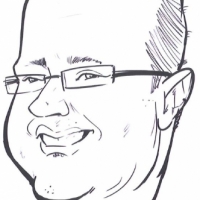Copyrights?

Hi all, I want to post a song I composed last year, but before I do, I'm unsure of the legal situation. Here's the situation:
I was looking around for inspiration when I found a great poem, first published in 1934 by Clare Harner with the title "Immortality". Those lines touched me deeply and I thought, this is already a possible song. So, I took the liberty to change them minimally to fit them better into the tune.
Do I have to be aware of a possible rights infringement? Before I upload this to soundclick, I better be sure...
Any thoughts on this?
Cheers
Stefan
Comments
-
I think it could be problematic. These days, I believe that copyright on a literary work lasts 70 years after the author's death, which was in 1977. However, for books published as long ago as 1934, before the law was changed to bring it more in line with the rest of the world, the situation is different and depends on whether the work was published with copyright notice, usually found at the front of the book, and whether the copyright was renewed.
If there was no copyright notice, it would be in the public domain and free to use however you want. This is probably unlikely.
If it was published with notice but copyright was not renewed, it's in the public domain due to copyright expiration
If it was published with notice and the copyright was renewed, copyright would expire 95 years after publication date, in this case 2029.
I'm not a copyright lawyer or expert, but I had to figure out something similar a while ago, so I think I'm correct. This all applies only to the US, of course.
0 -
Copyright is complicated. @OnlyGavin sums it up pretty well. I would stay well clear of releasing anything written by anyone else - words or music - unless you really understand the rules. It may well vary from country to country too.
Slightly off topic, but there is a section on this site dedicated to covers. It's a nice idea and there's already some tasty stuff there. But I'm not sure where this stands in terms of copyright. There's no money changing hands so it's possibly okay, but I'd want to know for sure before I posted a cover.
0 -
Thx so much for your comments, guys. That sums up what I was already expecting...
But getting in touch with an old publisher, or finding out his legal successor in the US or GB with impact on german copyrights really exceeds my capabilities. That's not worth my time. Even I find the song to be one of my personal bests, I'll better let it be...
however, this looks different in terms of doing a cover song, especially when you do not look for financial gain (doing it just for the fame...:-)))). I raised that question to the soundclick-support and will keep you posted on their response.
Again, thanks a lot! I'm looking forward to future songs/lyrics/commenst or just an exchange of ideas...
I really like this forum
0 -
I'm not a lawyer, and you probably need one to get a reliable answer but here is my two cents.
Assume copyright exists on any work for 70 years after the author's death.
In Australia at least, you do not need a © symbol anywhere to have copyright on your work, or others on their works. It exists as soon as you put pen to paper, the symbol is merely you asserting that you have the copyright on this work. Then comes evidence / proof that the work is yours. In the case of a published work that evidence is pretty clear.
When there is no money involved, if you use copyrighted material it is likely that the worst that will happen is you receive a take-down notice to remove the offending material. That doesn't prevent someone taking legal action, but it's not likely given there is no financial incentive to do so.
That applies to recordings of covers of songs as well. You can play a cover live legally (at least in Australia) but once you record it, you are in breach of copyright unless you have a prior agreement with the copyright owner.
But the internet is full of recordings of covers. And I allow them here on the same basis. The risk is minimal, and removal of any disputed material will very likely be sufficient remedy. Provided there is no money changing hands.
Sampling, ie direct inclusion of a portion of someone else's recording within your own recording is another beast. My understanding there is it is legal provided it is less than a given duration - I forget the exact number but around 10 secs.
And then there are provisions for fair use of copyrighted materials, for commentary, review and teaching purposes for example.
1 -
Here is the answer i got from soundclick:
Hello, The best practice is to place the song in a "Cover Songs" subgenre and credit the original songwriter. And, like you said, do not sell the material unless you have written permission to do so.
So I did...not selling it...living at the limit...:-)
0 -
I think you need a mechanics license to do one
I don't know if most people get one before singing one , I'm sure majors do
I never sing covers
Luke paid I bet
Tracy kinda disappeared
0 -
If you want to record and release your own cover version of someone else's song, then you'll need a “mechanical license” for your cover song. A mechanical license is the right to make copies of the song's musical structure such as the lyrics and notes, which is called the musical composition.
What is a mechanical license used for?
Simply stated, a mechanical license is required under U.S. Copyright Law if you want to manufacture and distribute recordings of compositions written by someone other than yourself. They ensure that the music publisher, and ultimately the songwriter, gets compensated for the use of their work.
0 -
Simple logic if your not getting a license , You're stealing their song .
0 -
Can I cover a song without permission? If a sound recording of the song is not in the public domain, then the artist must seek permission to use it on their YouTube channel, or they may face a copyright claim, These spiders pick up on that
0 -
Copyrights from old, old songs expire and the songs become Public Domain. BUT . . . it's not as simple as that. After the law changed and the expiration date was essentially pushed back to 'never', there was a provision for songs that were still under copyright when the law changed to 'renew' their copyrights. It can be tricky to find out which ones renewed their copyrights and which ones didn't.
1
Howdy, Stranger!



